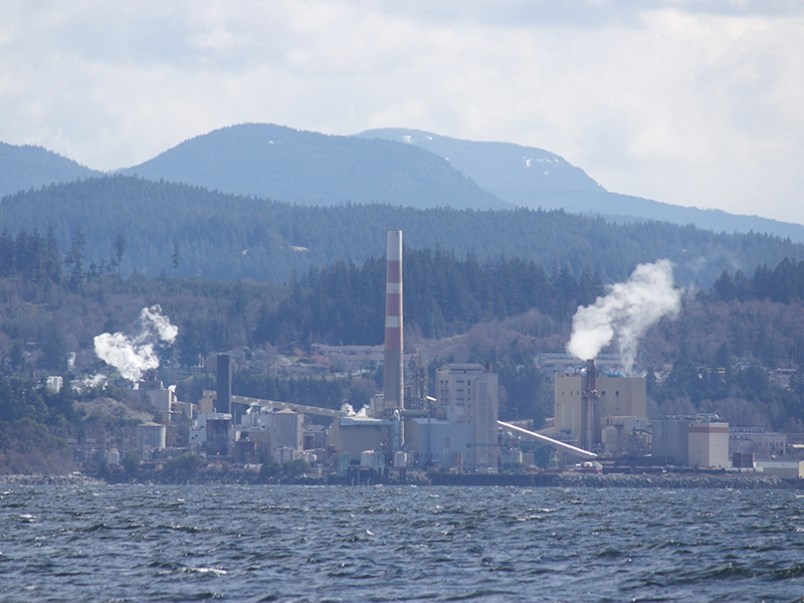City of Powell River has adopted a revitalization tax exemption bylaw that will fix Catalyst Paper Corporation’s annual property tax bill at $3.2 million for the next three years.
At a special meeting of city council on October 23, councillors voted unanimously in favour of the revitalization tax exemption bylaw, which raises the mill’s assessment by $150,000 per year over the previous revitalization tax exemption bylaw.
Councillor George Doubt, the city’s finance committee chair, said the bylaw had already received its first three readings, and public notice had been given by publishing details of the bylaw in successive publications of the newspaper.
Doubt noted no members of the public had shown up in council chambers to talk about the bylaw, but he wanted to talk about council’s ability to grant a revitalization tax exemption bylaw.
He said he wanted to start off with some provincial government approval of local bylaws information and he found some information online from the Province of BC recognizing that local governments generally have broad authority to provide services, adopt bylaws and regulate a number of things under municipal jurisdiction.
One of those items is listed in section 226 of the Community Charter, which gives councils the authority to exempt municipal property value taxes for certain properties. He said councils can specify revitalization programs and the amount and extent that tax exemption is available.
“One of the important parts of the information around this is that authority to provide revitalization tax exemption is not subject to section 25 of the Community Charter, which is the prohibition against assistance to business,” said Doubt. “I thought that was an important thing to mention because I’ve heard people talking about that.”
Doubt said there is a list of reasons in provincial publications about why a municipality would want to have a revitalization tax exemption. One of the reasons is economic revitalization.
“The example they use is encouraging investment and employment,” said Doubt. “Examples include that council could partially exempt the local pulp mill from disproportionately high industrial taxes, therefore supporting reinvestment in the community and helping to retain jobs, which is exactly what we are doing, and why we are doing it with this bylaw.
“I support it. I think we are well within our rights as a council to establish this kind of bylaw. This new bylaw, which replaces the previous one, provides the city with a larger amount of tax income from this property than in past, and I think it’s a positive thing, both for the industry and the community.”
Councillor Cindy Elliott said she wanted to speak in favour of the motion.
“It’s a good idea to have an agreement,” said Elliott.
She said if the mill goes into arrears, the mill loses its tax break, so the revitalization tax exemption bylaw is an incentive to the mill to pay its taxes on time.
“If it doesn’t pay its taxes, we’re back to the original bill that would have to be paid without the agreement,” said Elliott.
Chief financial officer Adam Langenmaier said the $150,000 annual increase to the revitalization tax exemption bylaw was about a five per cent increase over the previous three-year bylaw.
Mayor Dave Formosa said council had called the special meeting to approve the bylaw because the province has to send out its tax rolls for next year, so council had to have the bylaw in place by October 31 to meet the requirement.
The estimated exemption for Catalyst for 2021 is $2,745,287, for 2022 it is $2,800,192, and for 2023, the value is $2,896,196.



